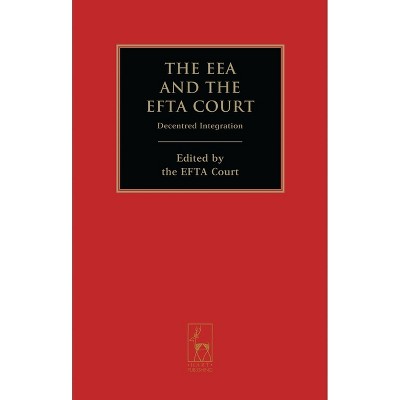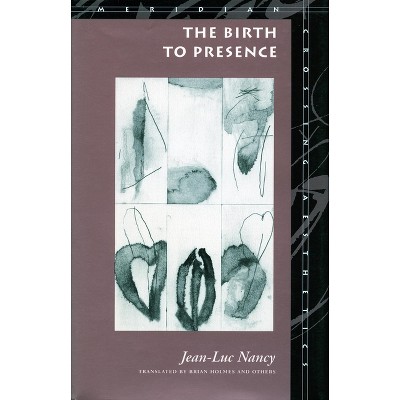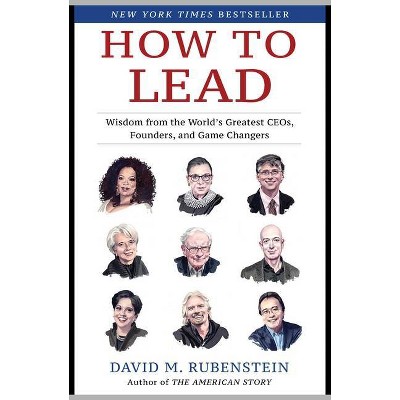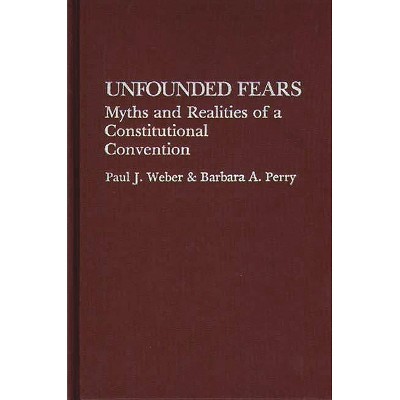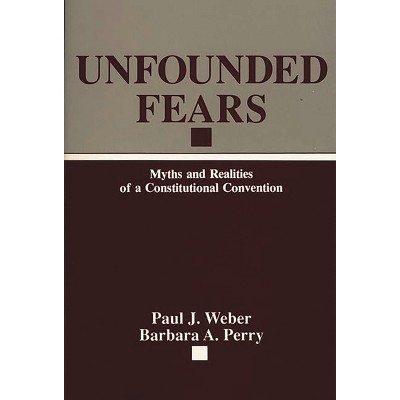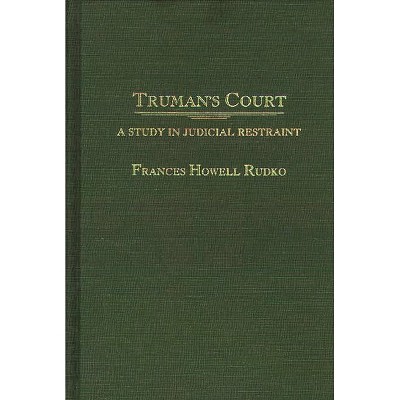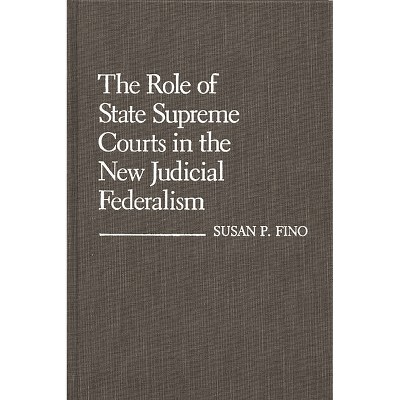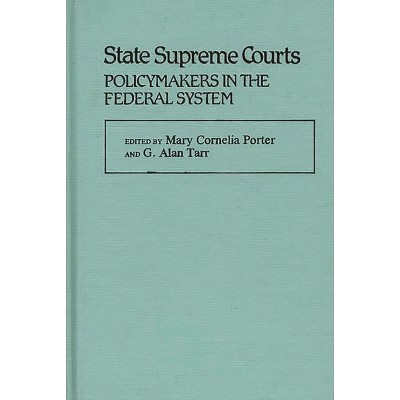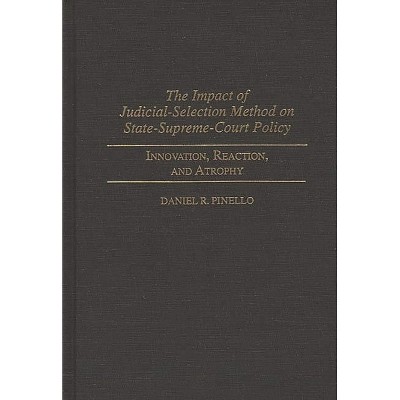Sponsored

A Representative Supreme Court? The Impact of Race, Religion, and Gender on Appointments - (Contributions in Legal Studies) by Barbara Perry
In Stock
Sponsored
About this item
Highlights
- In recent decades, the U.S. Supreme Court has taken on an increased political prominence, due largely to such controversial issues as abortion, the separation of church and state, and civil rights.
- About the Author: BARBARA A. PERRY is Assistant Professor in the Department of Government at Sweet Briar College.
- 176 Pages
- Political Science, American Government
- Series Name: Contributions in Legal Studies
Description
About the Book
In recent decades, the U.S. Supreme Court has taken on an increased political prominence, due largely to such controversial issues as abortion, the separation of church and state, and civil rights. Because such issues could be affected by a Court member's personal beliefs and experiences, the question of how race, religion, and gender influence Supreme Court appointments is a crucial one. In this work, Barbara Perry explores the impact of these factors on the Court, placing the presidential nominations in their historical and political contexts. She examines the question of whether justices should be chosen in order to create a representative court that reflects elements in American society.
The book is based on both primary and secondary sources, including interviews with seven members of the Court. Following a detailed introduction, Perry provides a historical analysis of the appointments of eight Catholics, five Jews, one black, and one woman, revealing a link between the appointments and the political, social, electoral, and demographic contexts in which they were made. She traces the decline in importance of the religious factor, as the ascendence of religious groups in mainstream politics no longer made it necessary for presidents to maintain a representative Court position. Representative considerations, however, will continue to play a role in the selection process, and Perry argues for a reconciliation between the undeniable pull of politics and ideology and the demands for merit-based appointments. This work will add an important new perspective to studies of the Supreme Court, as well as to the study of law, political science, and American history.
Book Synopsis
In recent decades, the U.S. Supreme Court has taken on an increased political prominence, due largely to such controversial issues as abortion, the separation of church and state, and civil rights. Because such issues could be affected by a Court member's personal beliefs and experiences, the question of how race, religion, and gender influence Supreme Court appointments is a crucial one. In this work, Barbara Perry explores the impact of these factors on the Court, placing the presidential nominations in their historical and political contexts. She examines the question of whether justices should be chosen in order to create a representative court that reflects elements in American society.
The book is based on both primary and secondary sources, including interviews with seven members of the Court. Following a detailed introduction, Perry provides a historical analysis of the appointments of eight Catholics, five Jews, one black, and one woman, revealing a link between the appointments and the political, social, electoral, and demographic contexts in which they were made. She traces the decline in importance of the religious factor, as the ascendence of religious groups in mainstream politics no longer made it necessary for presidents to maintain a representative Court position. Representative considerations, however, will continue to play a role in the selection process, and Perry argues for a reconciliation between the undeniable pull of politics and ideology and the demands for merit-based appointments. This work will add an important new perspective to studies of the Supreme Court, as well as to the study of law, political science, and American history.Review Quotes
"The debate over a 'representative' Supreme Court and federal bench is an important one in and for our system of constitutional politics. Professor Perry has made a notable contribution to that debate. Both sides of the controversy over representative appointments to the federal judiciary will benefit from her study of past representative appointments to the high bench, and her sensibly measured argument for a representative Supreme Court."-From the foreword by Professor David M. O'Brien University of Virginia
?Perry's book could not have been published at a more propitious time, given George Bush's recent nomination of Clarence Thomas to fill the "black seat" on the Supreme Court left vacant by Justice Thurgood Marshall's retirement. Beginning with a history of the constitutional provisions concerning judicial selection and the practices of American presidents in this regard. Perry (Sweet Briar College) moves on to discuss the 16 cases in which a Catholic, Jewish, female, or African-American has been nominated (not including Thomas). She finds that "representativeness" was a factor in 12 cases but a primary factor in only 2 (O'Connor and Marshall). Once a group becomes assimilated into American politics and society, dependence on such factors as representativeness tends to decrease (e.g., the lack of a Jewish justice since 1969, and the "overrepresentation" of Catholics on the Court today). The appointment of Thomas to succeed Marshall would tend to verify that thesis. So long as minimal standards of merit are met, Perry believes that representativeness on the Court helps "accommodate cultural diversity" and creates a public perception that "the high bench is open to all groups in society." Only when this factor eclipses judicial merit does Perry object to its application. One might add that representativeness should not preclude qualified individuals from consideration. Extensive notes, bibliography, and appendixes. Recommended for all levels of readers.?-Choice
"Perry's book could not have been published at a more propitious time, given George Bush's recent nomination of Clarence Thomas to fill the "black seat" on the Supreme Court left vacant by Justice Thurgood Marshall's retirement. Beginning with a history of the constitutional provisions concerning judicial selection and the practices of American presidents in this regard. Perry (Sweet Briar College) moves on to discuss the 16 cases in which a Catholic, Jewish, female, or African-American has been nominated (not including Thomas). She finds that "representativeness" was a factor in 12 cases but a primary factor in only 2 (O'Connor and Marshall). Once a group becomes assimilated into American politics and society, dependence on such factors as representativeness tends to decrease (e.g., the lack of a Jewish justice since 1969, and the "overrepresentation" of Catholics on the Court today). The appointment of Thomas to succeed Marshall would tend to verify that thesis. So long as minimal standards of merit are met, Perry believes that representativeness on the Court helps "accommodate cultural diversity" and creates a public perception that "the high bench is open to all groups in society." Only when this factor eclipses judicial merit does Perry object to its application. One might add that representativeness should not preclude qualified individuals from consideration. Extensive notes, bibliography, and appendixes. Recommended for all levels of readers."-Choice
About the Author
BARBARA A. PERRY is Assistant Professor in the Department of Government at Sweet Briar College. She is the co-author (with Paul J. Weber) of Unfounded Fears: Myths and Realities of a Constitutional Convention (Greenwood Press, 1989).Shipping details
Return details
Trending Non-Fiction







